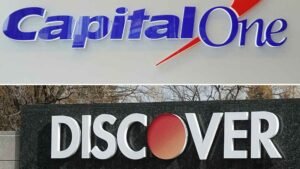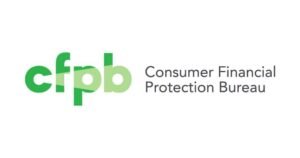Capital One Financial will acquire credit-card lender Discover Financial Services in a $35 billion all-stock transaction, forming the largest US credit card firm by lending volume.
Capital One, located in McLean, Virginia, would pay 1.0192 of its shares for each Discover share, representing a 26.6% premium to the closing price on February 16. The purchase is likely to be completed in late 2024 or early 2025.
The merger brings together two historic consumer finance brands, surpassing longtime competitors JPMorgan Chase & Co. and Citigroup Inc. in terms of credit-card lending volume in the United States. According to the announcement, Capital One shareholders would own around 60% of the merged firm, while Discover shareholders would possess approximately 40%. The deal will result in $2.7 billion in pre-tax synergies.
Discover’s acquisition is the world’s largest this year. So far, the most significant transaction has been Synopsys Inc.’s nearly $34 billion acquisition of software maker Ansys Inc., which was disclosed in January.
Discover and Capital One Assets
According to Federal Reserve figures from December, Discover was the 27th largest US bank with about $150 billion in assets, while Capital One was ninth with $476 billion. Once the merger is completed, the merged business will be the sixth-largest bank in the United States.
While both firms share several credit card business sectors, Discover is one of the leading credit card processors in the United States. The agreement comes with a renewed regulatory focus on credit card fees, as recommended by the Consumer Financial Protection Bureau (CFPB).
CFPB’s Concerns and Discover Regulatory Challenges
The Consumer Financial Protection Bureau, led by merger skeptic Rohit Chopra, voiced worries about competition in the US credit card industry, citing research that showed lower interest rates provided by local banks and credit unions in the first half of 2023.
Faced with regulatory issues, Discover announced a study of wrongly categorized credit card accounts from mid-2007 and pledged to improve customer compliance as part of a consent decree with the Federal Deposit Insurance Corporation in October.
Both Discover and Capital One reported reductions in fourth-quarter profitability, with Discover falling 62 percent and Capital One falling 43 percent. Regulatory problems, particularly supervisory concerns, are often impediments to mergers between financial organizations, although regulators may be more amenable when issues exist with the target company and the purchasing corporation has a solid regulatory track record.










